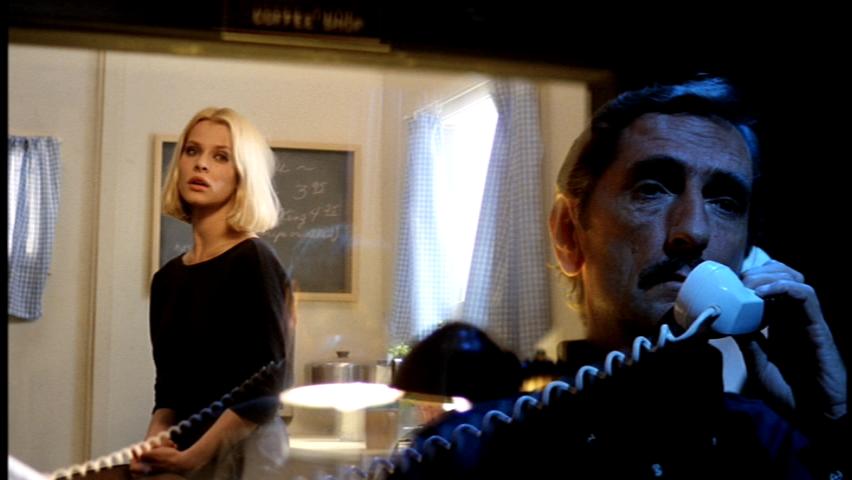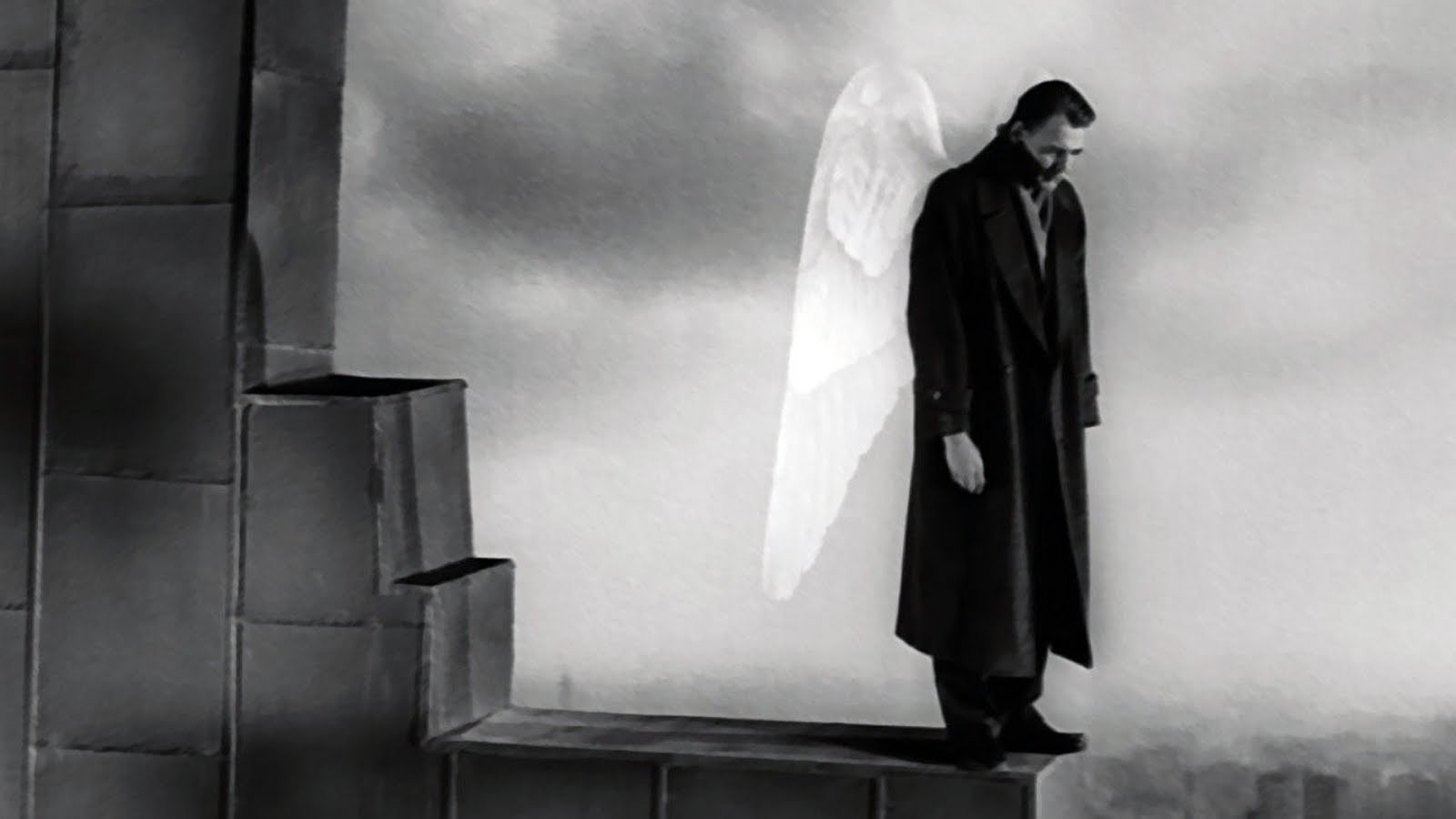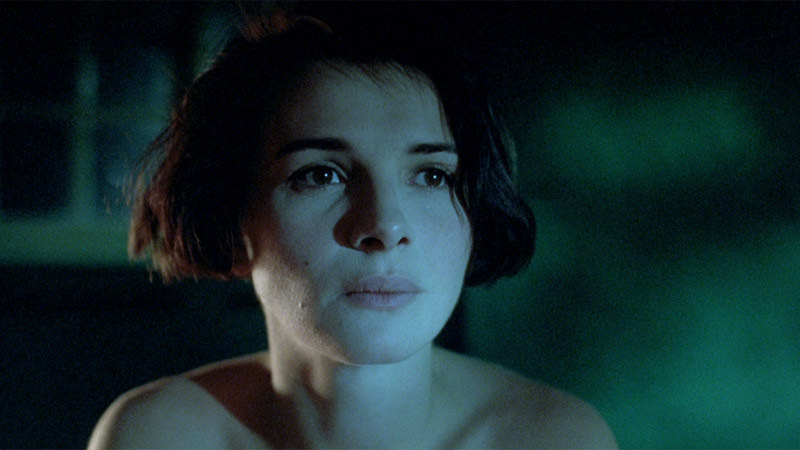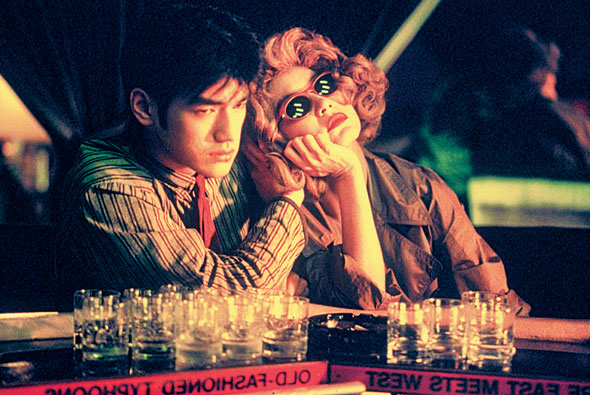7. Taxi Driver (1976)
Frequently discussed as one of the best films ever made, Taxi Driver is Martin Scorsese’s 1976 masterpiece, set in a downright seedy and filthy backdrop of New York City. Teaming up with Robert De Niro again, the director made Taxi Driver into a character study of a lonely, misunderstood and temperamental young man.
Travis Bickle (De Niro) is an ex-marine, living alone in New York City and suffering from insomnia. Through his night-time occupation of taxi-driver, he witnesses the wretched and sickening city that he now lives in, which only fuels his already pent up rage.
When a newly found love interest quickly turns sour, Travis soon focuses his attention to a teenage prostitute (Jodie Foster) and tries to convince her to break free from her sexual slavery. As expected, the young girl’s pimp takes exception with this notion, leading to a disturbing and bloody finale, which includes our lead character’s transformation from an angry cab-driver to deranged executioner.
Arguably the best portrayal of urban alienation, Taxi Driver is an unforgettable and distressing movie that is powerfully enhanced by the incredible performance from the cast. A realistic and nightmarish portrait of a man’s mental deterioration, Taxi Driver contains some of the greatest and most iconic scenes ever filmed.
8. Paris, Texas (1984)
The first of two film directed by Wim Wenders on this list brings us Paris, Texas. Starring the vastly underrated Harry Dean Stanton, this tender road trip movie is a touching, melancholic study of a man who, although years late, finally faces the people he so badly treated. Set in the American southwest, Wenders has created another emotional tale of alienation and withdrawal, supported by a great score.
Travis (Stanton) is a presumed dead, muted and resigned drifter who is on a quest to track down his wife and son that he abandoned 4 years ago. As he hopes to try and rebuild the relationships, the painful memories sharpen, as reflection of his actions hit hard. When the truth draws near for Travis, an emotional and powerful resolution awaits.
A thought-provoking and realistic tale of redemption, Paris, Texas is a lingering character development story with a poignant twist.
9. Wings of Desire (1987)
The second film directed by Wim Wenders on this list, Wings of Desire is a slow-paced and poetic drama that tells the story of two invisible and eternal angels in Berlin, played by Bruno Ganz and Otto Sander. Primarily shot in black and white, we see how the world looks through the eyes of our angels, whilst also being able to hear the thoughts of the people in focus.
Damiel (Ganz) and Cassiel (Sander) are both angels that roam the beautiful city of Berlin, observing the actions and thoughts of their subjects of choice. When the angels begin to pay more attention to their preferred mortals, this causes Damiel to fall in love with a trapeze artist named Marion.
The more Damiel sees of Marion, the more he longs to renounce his immortality. This leads to a meeting with Peter Falk, playing himself, as an actor currently based in Berlin, who shares a bond with the angel. Things however do not go as smoothly for Cassiel and the two angels soon begin to drift their separate ways and a return to colour beckons for one.
Complete with a wonderful score, powerful film footage and a truly moving storyline, Wings of Desire is a romantic and profound love story, wonderfully directed by Wim Wenders.
10. Naked (1993)
British director Mike Leigh is well known for displaying realistic scenes of an intense and uncompromising nature. His 1993 drama, Naked, is possibly his grimmest and most depressing account yet. David Thewlis stars, as Johnny, a troubled yet intelligent and well-educated young man, obviously suffering from a depression of some kind.
Johnny is seen as a wandering drifter, who flees his home town of Manchester, after a sickening sexual altercation in a back alley. When Johnny seeks refuge in his ex-partner Louise’s flat, based in London, it’s not long before we see the true side of this nihilistic, sarcastic and violent character. As the mood darkens even further, we watch as Johnny experiences more encounters with other fellow down and outs, which only intensifies the brutal and bitter atmosphere of this movie.
A desperately bleak ‘dark-comedy’, Naked is an extremely raw yet intelligent film that contains a career best performance from David Thewlis. A huge success at the Cannes festival in 93, Naked hits like an emotional juggernaut, and then some. You have been warned.
11. Three Colours: Blue (1993)
Three Colours: Blue, the first instalment in Krzysztof Kieslowski’s amazing Three Colours Trilogy, is arguably the best and most famous of the three. Starring the brilliant Juliette Binoche, the film is captured in tones of Blue, that highlight the grief and suffering that our main character encounters.
After losing loved ones to a fatal car accident, Julie (Binoche) finds that the only way she can cope with her loss, is to completely disconnect with her past and start a new life on her own. The more Julie tries to isolate herself, the stronger the memories are returned, as characters both new and old invade her new beginning. As Julie’s self-imposed exile begins to fragment, events unfold that question her strength of character and her quest for liberation.
Sparse in dialogue and action, ‘Blue’ is a moving and painful observation of a woman emotionally devastated with bereavement. Whether through Binoche’s outstanding performance or the incredible musical vignettes, ‘Blue’ is simply a masterpiece in contemporary cinema.
12. Chungking Express (1994)
Chungking Express is a 1994 Hong Kong romantic drama, directed by the great Wong Kar-Wai and stars Tony Leung and Takeshi Kaneshiro. Broken into two different segments, the film follows each main character and their melancholic journey in love, both past and present.
The first story shows Cop 223 (Kaneshiro) as a lovelorn and lonely policeman trying to get over a recent break up. After a planned period of recovery time, he feels ready to move on and almost immediately falls into the path of a particular femme fatale. We look on as an element of hope is given to Cop 223, however it may not be the opportunity he expected.
In the second story of the film, a new policeman is introduced as Cop 663 (Leung), a man also dealing with a breakup. After meeting a new love interest, albeit rather bizarrely, we watch as a charming relationship is formed, between the lonesome Cop 663 and a local snack-bar worker.
Wong Kar-Wai expertly displays the coincidences that link the two segments, despite the difference between the two. The first being a much darker, moody piece while the second plays at a much more relaxed and playful pace. Overall, Chungking Express is a stylistic and intoxicatingly beautiful film that will live long in the memory.
13. Leaving Las Vegas (1995)
Leaving Las Vegas is a despairing tale of two desperately lost souls and their struggles with addiction and loneliness. Nicolas Cage stars alongside Elizabeth Shue in this bleak portrait of a man and his crippling affliction with alcoholism.
The story opens with Ben (Cage), a man who has lost everything, his wife, his child and job. With his severance money he decides to travel to Las Vegas alone, where he can literally drink himself to death. Fate would have it that he would meet a prostitute named Sera (Shue), a young, intelligent woman not without her own problems but a considerate soul with her heart in the right place.
As they both accept each other for who they are, they develop a closeness that Sera in particular has always desired. With this bond evidently enhancing, a light appears at the end of the tunnel and for a brief moment in time a sense of opportunity appears and begs to be accepted. But with Ben in this much trouble, will it be a case of too little too late, in his self-loathing and tragic demise?
An intensely depressing love story, Leaving Las Vegas also contains probably the best performance from Nic Cage that we are ever likely to see. His portrayal of a man in the final stages of alcoholism was rightly recognised with an Oscar win and his onscreen chemistry with Shue, who should have received a win of her own, is a joy to behold in an otherwise grim story. Leaving Las Vegas is a dark yet dignified film that is both powerful and emotional.






